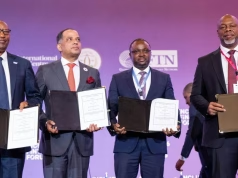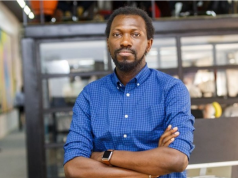Nigeria took center stage in West Africa’s push to expand its footprint in the global halal economy, leading a regional delegation of 25 buyers at the Malaysia International Halal Showcase (MIHAS) 2025. Organized by the Malaysia External Trade Development Corporation (MATRADE), the recently concluded event served as a critical platform for international sourcing and strategic partnerships in the $3 trillion global halal industry. Among the West African participants, eight buyers hailed from Nigeria—more than any other country in the region—underscoring Nigeria’s growing ambition to become the Halal hub for West Africa.
The Nigerian delegation was joined by buyers from Senegal, Mali, and Ghana, representing a diverse mix of small and medium enterprises (SMEs) and major supermarket chains. Their presence highlighted not only the rising domestic demand for certified halal products in Nigeria but also the region’s increasing integration into global halal supply chains. With over 200 million people—over half of whom are Muslim—Nigeria represents one of the largest potential markets for halal food, personal care, pharmaceuticals, and lifestyle products in Africa.
MIHAS 2025 facilitated more than 4,000 one-on-one business meetings between 300 international buyers from 50 countries and 600 Malaysian exporters, generating an estimated RM2.5 billion ($585.6 million) in sales. This year’s International Sourcing Programme (INSP), run alongside the main exhibition, proved instrumental in forging direct trade linkages and accelerating export opportunities for participating nations.
Aiyub Omar, High Commissioner of Malaysia to Nigeria, welcomed the strong Nigerian participation, calling it a clear signal of growing interest in building a robust halal ecosystem. “The keen engagement of Nigerian industry players will pave the way for faster development of the halal sector in Nigeria in the coming years,” he said. He added that discussions are underway between Malaysian and Nigerian authorities, including a recent meeting in August 2025 with a representative from the Nigerian Presidency, to deepen bilateral cooperation following the finalization of Nigeria’s national halal roadmap.
This collaboration reflects increasing global recognition of Malaysia’s leadership in halal certification, standards, and trade facilitation. As Nigeria works to establish its own regulatory framework, the partnership offers a model for institutional alignment, capacity building, and market access.
Jude Bryan, First Secretary (Trade) at the Malaysian High Commission in Abuja, emphasized that the level of interest from Nigerian buyers opens a clear pathway for enhanced cooperation. “Their active participation signals a strong foundation for meaningful, long-term partnerships in the halal sector,” he said.
Trade data underscores the deepening economic ties between the two nations. In 2024, total bilateral trade surged by 58.7% to reach $1.52 billion, up from $956.76 million in 2023. While imports from Nigeria rose sharply by 121.7%, Malaysian exports to Nigeria grew by 5.8% to $550.08 million. Key Malaysian exports during this period included palm oil and palm-based agricultural products, processed foods, machinery, printed materials, and metal manufactures.
For the first eight months of 2025, overall trade between the two countries dipped slightly by 8.7% to $883.82 million—a trend analysts attribute to broader macroeconomic adjustments in Nigeria. However, Malaysian exports to Nigeria still grew by 19.9% to $413.24 million, indicating sustained demand for high-quality halal-compliant goods.
As Nigeria advances its plans to formalize its halal certification system and position itself as a regional gateway, events like Nigeria MIHAS 2025 serve as vital springboards for knowledge exchange, investment, and cross-border collaboration. By engaging directly with global leaders in halal trade, Nigerian businesses are not just accessing new suppliers—they are shaping their role in the future of a faith-driven, values-based global economy.
With momentum building and institutional frameworks taking shape, Nigeria’s emergence as a key player in the international halal market appears not just possible—but increasingly inevitable.
Follow us on Instagram.
https://www.instagram.com/businessnewsng?igsh=ZXpweTdjOGF1ZXdu

























